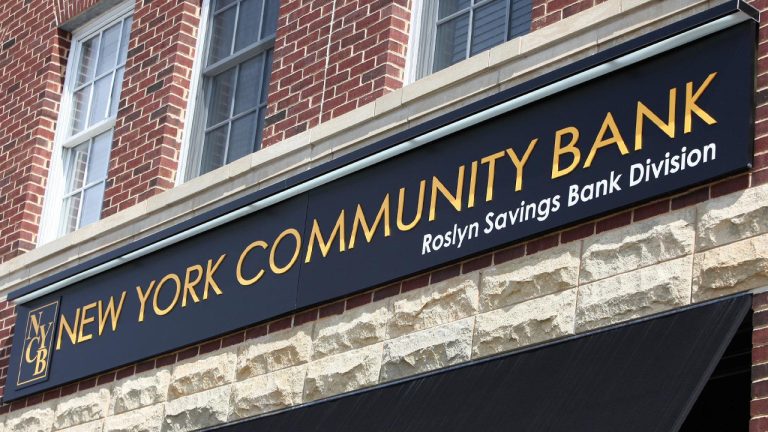New York Community Bancorp (NYCB) faced severe difficulties on Wednesday, with its shares plunging more than 40% and trading halted. NYCB stock is currently trading at $6.61 per share, down just over 36%.
Banking concerns from last year resurface as NYCB faces harsh revenue reality
The financial difficulties of New York Community Bancorp (NYSE: NYCB), which acquired Signature Bank, resurfaced, sending the stock down sharply during trading on Wednesday. NYCB’s shares have plunged more than 40% against the US dollar since the bank’s latest earnings release. The financial institution has declared firm steps to shore up capital, strengthen balance sheets and strengthen risk management practices as the company enters the $100 billion megabank arena.
*New York community BANCORP plunges record 44% in open https://t.co/SW7aEJTjRM
— Zerohedge (@zerohedge) January 31, 2024
For the quarter ended December 31, 2023, NYCB reported a net loss of $252 million, a stark contrast to net income of $207 million for the quarter ended September 30, 2023. Net loss available to common stockholders at September 31, 2023 was $260 million, compared to net income of $199 million for the quarter ended September 30, 2023.
The dramatic financial turnaround caused the company’s diluted earnings per share (EPS) to plummet to a loss of $0.36 for the quarter ending December 31, 2023. This is a complete reversal from $0.27 diluted EPS just three months ago. The problems facing NYCB revive many of the same concerns that rocked the U.S. banking sector in March 2023 following the failures of Silicon Valley Bank, Signature and First Republic. NYCB’s acquisition of Signature Bank was accomplished through an agreement with the Federal Deposit Insurance Corporation (FDIC).
Just came in:
The last time bank credit contracted to this extent was during the 2008 global financial crisis.
Probably nothing…
@MFHoz pic.twitter.com/SE7ota9t2B
—radar
(@RadarHits) January 31, 2024
Large financial institutions are struggling with the repercussions of long-term bonds amid the high interest rates set by the U.S. central bank. Rising interest rates lead to a decline in the value of long-term bonds, resulting in potential losses for banks. This is particularly destabilizing if a sudden withdrawal of deposits or other financial demands causes the bank to incur losses and have to liquidate these assets. This scenario had a negative impact on all three major U.S. banks last year, as each struggled with the dual challenges of long-term bonds and surging interest rates.
The collapse of Silicon Valley Bank triggered a mass exodus, with more than $100 billion in deposits being withdrawn, forcing the bank to take losses and pay off long-term bonds, culminating in a typical banking run. NYCB’s fourth quarter 2023 net income and diluted EPS were impacted by merger-related costs and a special assessment by the FDIC, the bank announced Wednesday. “In 2023, the New York community has reached an inflection point in our transformation into a dynamic, full-service commercial bank,” said Thomas R. Cangemi, CEO of NYCB.
What do you think about the issues New York Community Bancorp is dealing with on Wednesday? Share your thoughts and opinions on this topic in the comments section below.
Source: Bitcoin.com

